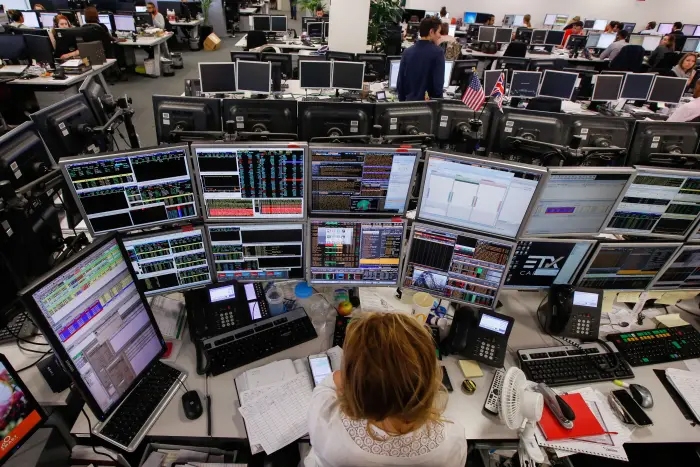
Equity markets and bond yields have traded lower over the past 24 hours amidst growing scepticism about Trump’s claim of a weekend call between US and Chinese officials, although the moves have been reasonably modest.
The GBP has appreciated on optimism that a no-deal Brexit might be prevented, while the NZD and AUD have underperformed against a mildly risk-off backdrop.
After a strong start to the week, equities and bond yields have moved modestly lower overnight as the market struggles to digest the constant, and sometimes contradictory, stream of news on the trade front.
Trump’s claim that US and Chinese negotiators had spoken over the weekend, which provided the impetus for Monday’s equity market rally, has been rebuffed again by Chinese officials, with a Ministry of Finance spokesperson saying yesterday he had not heard of this taking place.
On the Chinese side, media reports and comments by officials point to a growing resolve to ride out the trade war. The editor of the Global Daily, who is seen to be close to high levels of the Chinese government, tweeted that China was focused on supporting domestic demand and “not putting so much emphasis on trade talks.” In the same tweet, he added that “China's economy is increasingly driven internally, it's more and more difficult for the US to press China to make concessions.” China’s State Council yesterday unveiled some targeted measures aimed at supporting consumption, including loosening restrictions on buying cars. Meanwhile, Bloomberg reported on claims by unnamed Chinese officials that Trump’s credibility was a key obstacle to a trade deal and that only a few negotiators on the Chinese side saw a deal as possible before the 2020 US presidential election (in part because of wariness that Trump might subsequently renege).
The S&P500 is down by 0.3% overnight, with gains in defensive stocks – such as utilities and real estate – being more than offset by losses in cyclical sectors. The 10 year Treasury yield has fallen 5bps, to 1.49% and the US 2y10y yield curve has inverted, to -4bps. The inversion in the US curve and falls in rates have weighed on US bank stocks, with the market perceiving the combination to be detrimental for net interest margins. The KBW index of US bank stocks is over 1% lower overnight.
The short-end of the US yield curve was supported by a much stronger than expected US Conference Board survey, which showed headline confidence levels remaining near record high levels (in contrast of analyst expectations for a fall). The US 2 year yield is unchanged overnight. Consumers’ future expectations dropped, in-line with recent falls in equity markets, but this was offset by a rise in consumers’ assessment of the present situation. Notably, the so-called ‘labour market differential’, which measures the difference between those survey respondents saying jobs are ‘plentiful’ less those saying jobs are ‘hard to get’, rose to its highest level since September 2000. This indicator is consistent with a continued trend lower in the unemployment rate, although the market is much more focused on the potential economic fall-out from the recent escalation in the trade war.
Elsewhere, Italian government bond yields moved sharply lower overnight after signs of progress in coalition talks between the PD (democrats) and Five Star parties. Bloomberg quoted unnamed officials as saying the two parties would seek keep the deficit under the 3% limit set by the European Commission, if a coalition agreement can be formalised. Italy’s 10 year yield fell 18bps, while the spread to the 10 year German bund fell to its narrowest level since May last year, at 183bps.
In currency markets, the GBP has been the star performer on some emerging optimism that a no-deal Brexit might be able to averted. The GBP is 0.6% stronger to almost 1.23, its highest level in a month. The Guardian reported that there was tentative optimism on both the UK and EU side after recent meetings between Boris Johnson and Merkel and Macron. EU officials were ready to look at “realistic” proposals for an alternative to the Irish backstop although, as yet, such a solution has proved elusive. EU officials are also wary that even if Johnson were able to come up with a deal, the parliamentary arithmetic and limited time until 31st October might scupper its chances of passing in time.
Separately, Labour leader Jeremy Corbyn met with opposition parties to determine a route forward to prevent a no-deal Brexit. Lacking agreement among opposition parties on who might lead an interim government, if a vote of no confidence were to succeed, MPs are reportedly coalescing around the use of legislative measures to force Johnson into extending the Brexit date beyond October 31st. The BBC reports that anti-Brexit MPs are planning to apply for an emergency debate as soon as next week to set out dates where parliament could legislate to force Johnson’s hand. The betting markets still assign around a 40% chance of a no-deal Brexit this year.
The NZD is at the bottom of the currency leader-board over the past 24 hours, and has fallen 0.5% to 0.6360. The AUD has also underperformed, and is 0.3% lower to 0.6755. The mildly risk-off backdrop amidst US-China trade tensions likely explains the underperformance of the two currencies. Meanwhile, the safe-haven Japanese yen has risen 0.3%, the second-best performing currency after the GBP.
In the Q&A to a speech yesterday, RBA Deputy Governor Debelle said the central bank saw the floor in the cash rate in Australia as likely to be around 0% to 0.5%. Consistent with previous comments made by RBA Governor Lowe, Debelle said if the cash rate got down to 0.5%, it would have to consider other options at that point. The RBA’s comments around the floor in the cash rate contrast with those made by RBNZ Governor Orr, who has suggested that negative interest rates would be his preferred policy option if the OCR were to ever to get to 0% and more easing was required.
1 Comments
A very telling comment: "On the Chinese side, media reports and comments by officials point to a growing resolve to ride out the trade war".
China and the Chinese are most likely to have the greater ability able to withstand and absorb the consequences of the Trade War more-so the US and Americans. The Trade War is likely to be just another Vietnam, Iraq, or Afghanistan and essentially for the same reasons.





We welcome your comments below. If you are not already registered, please register to comment.
Remember we welcome robust, respectful and insightful debate. We don't welcome abusive or defamatory comments and will de-register those repeatedly making such comments. Our current comment policy is here.